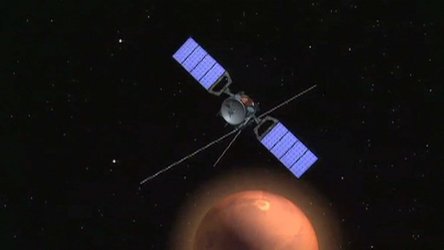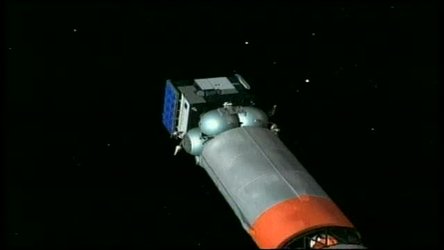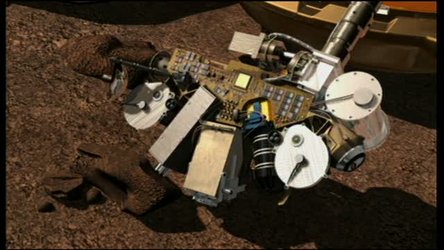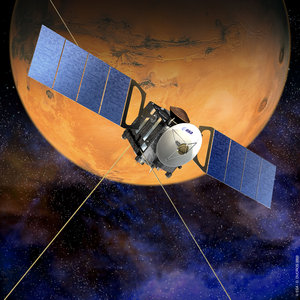Accept all cookies Accept only essential cookies See our Cookie Notice

About ESA
The European Space Agency (ESA) is Europe’s gateway to space. Its mission is to shape the development of Europe’s space capability and ensure that investment in space continues to deliver benefits to the citizens of Europe and the world.
Highlights
ESA - United space in Europe
This is ESA ESA facts Member States & Cooperating States Funding Director General Top management For Member State Delegations European vision European Space Policy ESA & EU Space Councils Responsibility & Sustainability Annual Report Calendar of meetings Corporate newsEstablishments & sites
ESA Headquarters ESA ESTEC ESA ESOC ESA ESRIN ESA EAC ESA ESAC Europe's Spaceport ESA ESEC ESA ECSAT Brussels Office Washington OfficeWorking with ESA
Business with ESA ESA Commercialisation Gateway Law at ESA Careers Cyber resilience at ESA IT at ESA Newsroom Partnerships Merchandising Licence Education Open Space Innovation Platform Integrity and Reporting Administrative Tribunal Health and SafetyMore about ESA
History ESA Historical Archives Exhibitions Publications Art & Culture ESA Merchandise Kids Diversity ESA Brand Centre ESA ChampionsLatest
Space in Member States
Find out more about space activities in our 23 Member States, and understand how ESA works together with their national agencies, institutions and organisations.
Science & Exploration
Exploring our Solar System and unlocking the secrets of the Universe
Go to topicAstronauts
Missions
Juice Euclid Webb Solar Orbiter BepiColombo Gaia ExoMars Cheops Exoplanet missions More missionsActivities
International Space Station Orion service module Gateway Concordia Caves & Pangaea BenefitsLatest
Space Safety
Protecting life and infrastructure on Earth and in orbit
Go to topicAsteroids
Asteroids and Planetary Defence Asteroid danger explained Flyeye telescope: asteroid detection Hera mission: asteroid deflection Near-Earth Object Coordination CentreSpace junk
About space debris Space debris by the numbers Space Environment Report In space refuelling, refurbishing and removingSafety from space
Clean Space ecodesign Zero Debris Technologies Space for Earth Supporting Sustainable DevelopmentApplications
Using space to benefit citizens and meet future challenges on Earth
Go to topicObserving the Earth
Observing the Earth Future EO Copernicus Meteorology Space for our climate Satellite missionsCommercialisation
ESA Commercialisation Gateway Open Space Innovation Platform Business Incubation ESA Space SolutionsLatest
Enabling & Support
Making space accessible and developing the technologies for the future
Go to topicBuilding missions
Space Engineering and Technology Test centre Laboratories Concurrent Design Facility Preparing for the future Shaping the Future Discovery and Preparation Advanced Concepts TeamSpace transportation
Space Transportation Ariane Vega Space Rider Future space transportation Boost! Europe's Spaceport Launches from Europe's Spaceport from 2012Latest
Mars Express Symposium
Mars Express is delivering an avalanche of scientific data of that is changing the way in which we think about the Red Planet. Two hundred scientists are currently attending the first Mars Express science conference at ESAÕs ESTEC Establishment in Noordwijk, the Netherlands. Discussions cover all aspects of this ground-breaking investigation, from an historical perspective to the latest surprising findings.
Members of the media are invited to a conference summary on Friday 25 February, at 14:00 CET. During the briefing, lasting about an hour, the Principal Investigators of all active experiments on board Mars Express will summarise the major scientific achievements of the first year in orbit and outline the plans for future research
SCRIPT MARS EXPRESS SYMPOSIUM
TC 10 00 40 00
From the Greeks more than 2000 years ago to Galileo Galilei or Eugene Antoniadi in the mid-1900s.. Mars has intrigued Europeans like no other planet! It is our immediate neighbor out from the sun and since the first telescope observations in the 1960s we suspect it is more Earth-like than any other planet. To what extent? is the biggest question that the European Mars Express mission is trying to answer!
Since entering itÍs operational orbit on Christmas day 2003, Mars Express has been restlessly mapping the surface and atmosphere of Mars, analyzing their chemical composition and delivering astonishing images of the Martian landscape! The result is an avalanche of scientific data that is dramatically changing the way we think about the red planet?
TC 10 01 39 00
Clip ? Gerhard Neukum ? HRSC Principal Investigator
ñWe thought Mars was not very active any more, smaller than the earth, lost itÍs heat very early, but itÍs been probably different? it has
-
CREDIT
ESA -
LICENCE
ESA Standard Licence
-
Documentary
-
-
-
-
-
-

Agustin Chicarro talks about Nili Fossae and Mars Express

Mars Express VNR 2003

Beagle 2 : Europe's Mars Lander

Space Review 2004















 Germany
Germany
 Austria
Austria
 Belgium
Belgium
 Denmark
Denmark
 Spain
Spain
 Estonia
Estonia
 Finland
Finland
 France
France
 Greece
Greece
 Hungary
Hungary
 Ireland
Ireland
 Italy
Italy
 Luxembourg
Luxembourg
 Norway
Norway
 The Netherlands
The Netherlands
 Poland
Poland
 Portugal
Portugal
 Czechia
Czechia
 Romania
Romania
 United Kingdom
United Kingdom
 Slovenia
Slovenia
 Sweden
Sweden
 Switzerland
Switzerland


























